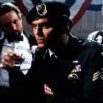In history reside the lessons
-
Recently Browsing 0 members
- No registered users viewing this page.
Announcements
-
Topics
-
Latest posts...
-
3
Thai Highway Police Pursue Pickup Truck Smuggling 29 Myanmar Migrants
An official at the border control is going peeved... his going to miss out on his cut.. -
56
-
1
Khao San Road Feels Pinch as European Tourists Hold Off on Bookings - video
Always something to blame, but the real reasons are the polluted air, expensive THB the alcohol restrictions, more expensive tickets, double pricing and standards, and so on.... but nothing to with the Russia Ukraine war or the Israeli war.. Thailand should stop finding excuses .. They ruined the tourism sector several years ago already and it is very difficult to rebuilt it as no investments are made, of course in words but not in deeds..Welcome tourist with a smile and treat them as guests instead as potential criminals -
1
Ratchamanu Task Force Rescues 39 Expatriates Trapped in Myanmar
That's 39 out of about 390,000 -
134
Marrying a Thai Wife: Overrated or Underrated?
Perhaps I took the wrong interpretation from your comment - it seemed you were implying that you are unable to differentiate between the 'genuinely married couples' and the 'P4P temporary arrangement'... Given your time here - all the dynamics and types of relationship should be quite obvious to identify - particularly in Bangkok... -
3
English speaking dentist recommendation
It's in Jomtien and I haven't used them yet but Ocean Dentist came highly recommended by my friends when I asked. https://oceandent.com/ -
153
So the U.S. elected an autocrat -- what to expect next from a Hungarian perspective
The regime of authoritarian Joe Biden and his "boy" Kamala Haris is finally over and Democracy is finally back to the State. Donald Trump sends the crowd wild at latest rally with signature dance moves -
5
The Strategic Threat of the Houthis Because of Inaction in Yemen
All good then. Finnish the job you fine examples of peace loving humanity. Nut case neanderthal Muslims.
-
-
Popular in The Pub
.png.3b3332cc2256ad0edbc2fe9404feeef0.png.8488ab72b8bb2e508209bfe3211b6e08.png)







Recommended Posts
Create an account or sign in to comment
You need to be a member in order to leave a comment
Create an account
Sign up for a new account in our community. It's easy!
Register a new accountSign in
Already have an account? Sign in here.
Sign In Now